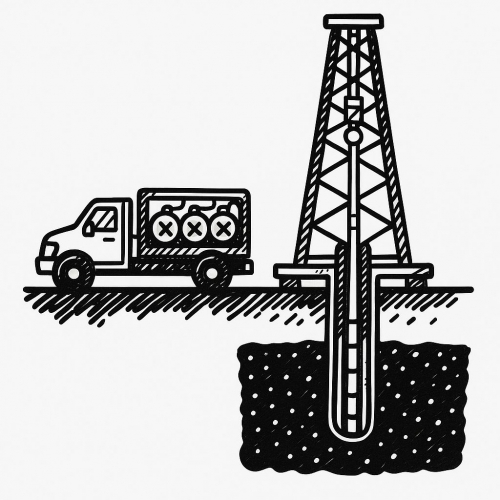Compressed natural gas (CNG) is a fossil fuel that is produced by compressing natural gas to less than 1% of its volume at standard atmospheric pressure. CNG is stored and distributed in hard containers at a pressure of 20–25 megapascals (2,900–3,600 psi), usually in cylindrical or spherical shapes.
CNG is used in a variety of applications, including:
- Transportation: CNG is used to fuel vehicles such as cars, trucks, buses, and trains.
- Power generation: CNG can be used to generate electricity.
- Industrial uses: CNG is used in a variety of industrial processes, such as food processing, metalworking, and glassmaking.
CNG is also used in the oil and gas industry. CNG can be used to power drilling rigs, fracking equipment, and other oil and gas field equipment. CNG can also be used to transport natural gas from oil and gas wells to processing facilities.
Benefits of using CNG in oil and gas wells
There are a number of benefits to using CNG in oil and gas wells, including:
- Reduced emissions: CNG produces fewer emissions than other fossil fuels, such as diesel and gasoline. This can help oil and gas companies to reduce their environmental impact.
- Lower fuel costs: CNG is often cheaper than other fossil fuels. This can help oil and gas companies to reduce their operating costs.
- Increased safety: CNG is safer to handle than other fossil fuels, such as gasoline and diesel. This is because CNG is a gas, and it dissipates quickly if released.
Challenges of using CNG in oil and gas wells
There are also some challenges to using CNG in oil and gas wells, including:
- Cost of infrastructure: CNG requires specialized infrastructure, such as compressors and storage tanks. This can be expensive to install and maintain.
- Limited availability: CNG is not as widely available as other fossil fuels, such as diesel and gasoline. This can make it difficult to obtain CNG in some areas.
Overall, CNG is a clean and affordable fuel that can be used to power oil and gas field operations. However, it is important to weigh the benefits and challenges of using CNG before making a decision.
Applications of CNG in oil and gas wells
Here are some specific applications of CNG in oil and gas wells:
- Drilling rigs: CNG can be used to power the engines on drilling rigs. This can help to reduce emissions and noise levels.
- Fracking equipment: CNG can be used to power the pumps and compressors used in fracking operations. This can help to reduce the environmental impact of fracking.
- Production equipment: CNG can be used to power production equipment, such as compressors and pumps. This can help to improve the efficiency of production operations.
- Transportation: CNG can be used to transport natural gas from oil and gas wells to processing facilities. This can be a more cost-effective and environmentally friendly way to transport natural gas than using trucks or pipelines.
Conclusion
CNG is a promising fuel for the oil and gas industry. It can help oil and gas companies to reduce their emissions, operating costs, and environmental impact. However, it is important to weigh the benefits and challenges of using CNG before making a decision.

%20(1).png)



